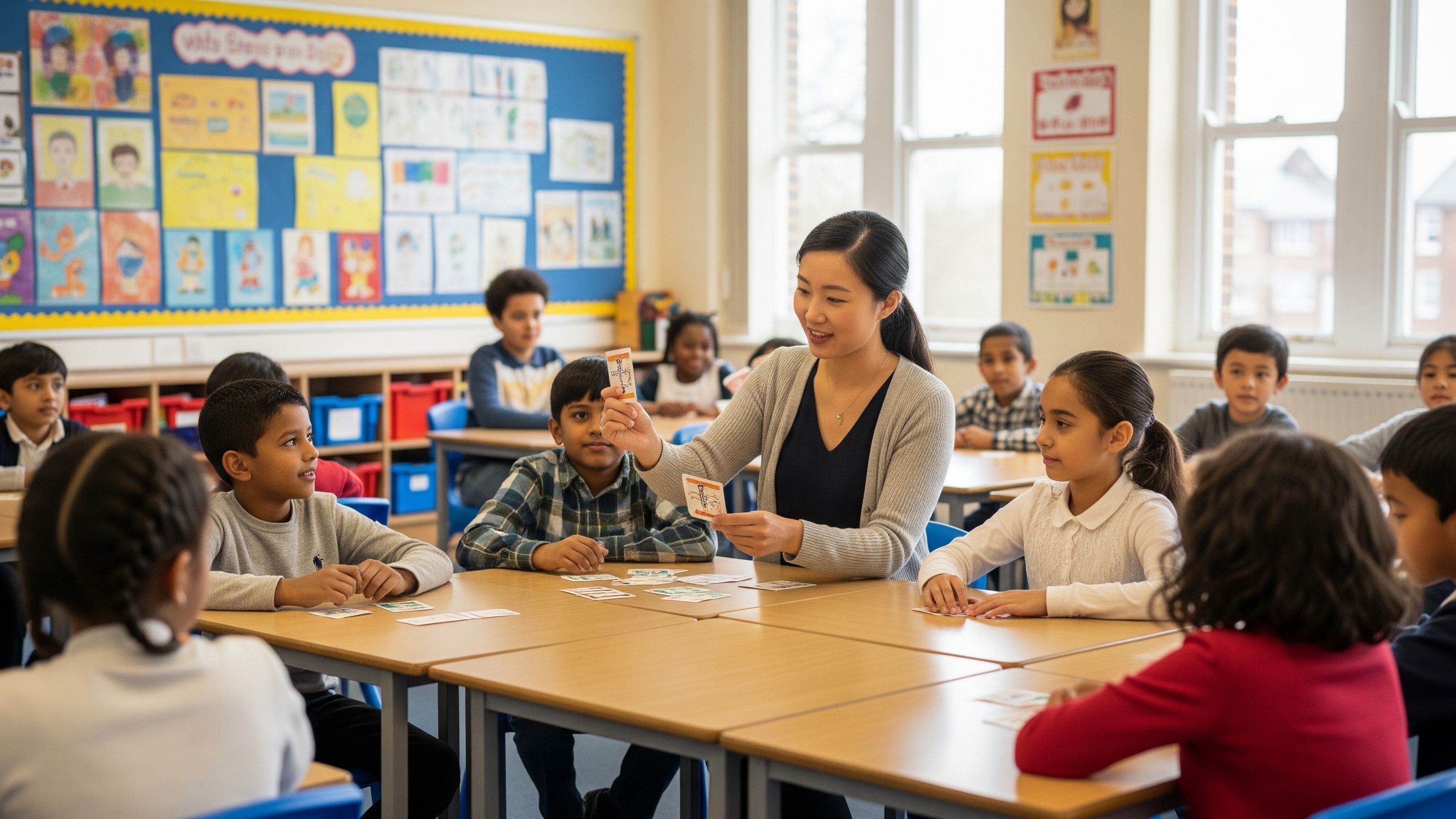
Is My Toddler Too Young for Mandarin? Debunking Age Myths in Language Learning
Jun 08, 2025As parents, educators, and childcare providers, we’re all looking for the best ways to nurture young minds. When it comes to language learning, particularly a language like Mandarin Chinese, a common question often pops up: "Is my toddler too young?"
It’s a natural concern. We often associate language learning with formal lessons, textbooks, and older children. However, when we look at how children naturally acquire their first language, the answer to that question becomes wonderfully clear: no, your toddler is absolutely not too young for Mandarin! In fact, their early years are a prime window for language acquisition.
The Amazing Toddler Brain: Why Early is Brilliant
Think about how quickly babies and toddlers soak up everything around them. Their brains are incredible sponges, wired for learning and adapting. This is especially true for language.
- A "Critical Period" for Sound and Accent: Research, particularly in neuroscience, suggests that young children have an extraordinary ability to distinguish and reproduce sounds that adults often struggle with. The complex tones of Mandarin (the different "pitches" that change a word's meaning) are much easier for a toddler's ear to pick up and their vocal cords to mimic naturally. This is why children who learn a second language early often speak with a near-native accent.
- Cognitive Flexibility: Juggling two languages from a young age actually strengthens cognitive skills. Studies have shown that bilingual children often demonstrate better problem-solving abilities, enhanced creativity, and improved multitasking skills. Learning Mandarin, with its unique characters and grammatical structures, can further boost this mental agility.
- Effortless Absorption vs. Conscious Study: For toddlers, language isn't about memorising vocabulary lists; it's about communication, play, and discovery. They absorb the language intuitively, much like they learned to walk or understand their first words. This natural, stress-free approach makes the learning process incredibly effective and enjoyable.
- Building a Foundation for Life: Early exposure lays a strong foundation for future learning. Even if a child doesn't become fluent by primary school, those early sounds, words, and cultural connections create a 'scaffold' that makes formal learning later on much easier and more engaging.
Fun Activities for Home: Bringing Mandarin to Life with Your Little One
You don't need to be a Mandarin expert or transform your home into a classroom. The key is consistent, playful exposure. Here are some simple, fun ideas to get started:
-
Sing-Alongs & Rhymes:
- What to do: Find simple Mandarin children's songs on YouTube (e.g., "Two Tigers" – 兩隻老虎, "Little Star" – 小星星). The repetition, rhythm, and simple vocabulary make them incredibly catchy and memorable.
- Why it works: Music taps into a different part of the brain and helps with pronunciation and memory without feeling like 'learning'.
-
Story Time with a Twist:
- What to do: Introduce simple Mandarin picture books. You don't have to read every word in Mandarin. Point to objects and say their Mandarin names (e.g., "Look, 狗 gǒu – dog!"). Or, for familiar English stories, occasionally interject simple Mandarin phrases like "你好 nǐ hǎo – hello" or "再見 zài jiàn – goodbye."
- Why it works: Connects words to visuals, builds vocabulary in context, and makes reading an interactive language experience.
-
Everyday Mandarin:
- What to do: Integrate a few key Mandarin phrases into your daily routine. Think greetings ("早上好 zǎo shàng hǎo – good morning"), simple commands ("坐下 zuò xià – sit down"), colours ("紅色 hóng sè – red"), or numbers ("一, 二, 三 yī, èr, sān – one, two, three").
- Why it works: Makes Mandarin feel natural and useful, connecting it to real-life situations. Consistency is more important than quantity.
-
Play with Props & Toys:
- What to do: Label toys around the house with their Mandarin names (using characters and pinyin). During playtime, refer to the toys by their Mandarin names. "Where's the 球 qiú (ball)?"
- Why it works: Associates words directly with objects, creating a tangible link that's perfect for young learners.
-
Watch & Learn (Mindfully!):
- What to do: A short, age-appropriate Mandarin cartoon or educational show can be a great supplement. Look for programmes designed for native-speaking toddlers with clear pronunciation and visual cues. Keep screen time limits in mind.
- Why it works: Provides authentic exposure to spoken Mandarin and different accents.
For Schools and Nurseries: Embracing the Early Advantage
For primary schools, nurseries, and senior leadership teams, understanding this early window is key. Integrating Mandarin into early years or Key Stage 1 provision isn't just about offering an extra-curricular activity; it's about:
- Enriching the Curriculum: Providing a truly global, holistic education that prepares children for an interconnected world.
- Enhancing Cognitive Development: Capitalising on the unique brain development of young children to boost their overall learning capabilities.
- Promoting Cultural Understanding: Introducing children to diverse cultures from an early age fosters empathy and broadens horizons.
- Attracting and Retaining Talent: Offering innovative language programmes can make your setting stand out to prospective parents and dedicated educators.
At Mando School, we believe every child deserves the opportunity to explore the wonders of Mandarin Chinese. We champion the benefits of early exposure and provide engaging, age-appropriate learning experiences that feel like play, not work.
So, the next time you wonder if your toddler is too young for Mandarin, remember: their curiosity, adaptability, and incredible brain are ready and waiting. Let's unlock the world of language together!
Ready to start your child's Mandarin adventure? Explore our fun and engaging programmes for toddlers and young children at MANDO SCHOOL!
Stay connected with news and updates!
Join our mailing list to receive the latest news and updates from our team.
Don't worry, your information will not be shared.
We hate SPAM. We will never sell your information, for any reason.

